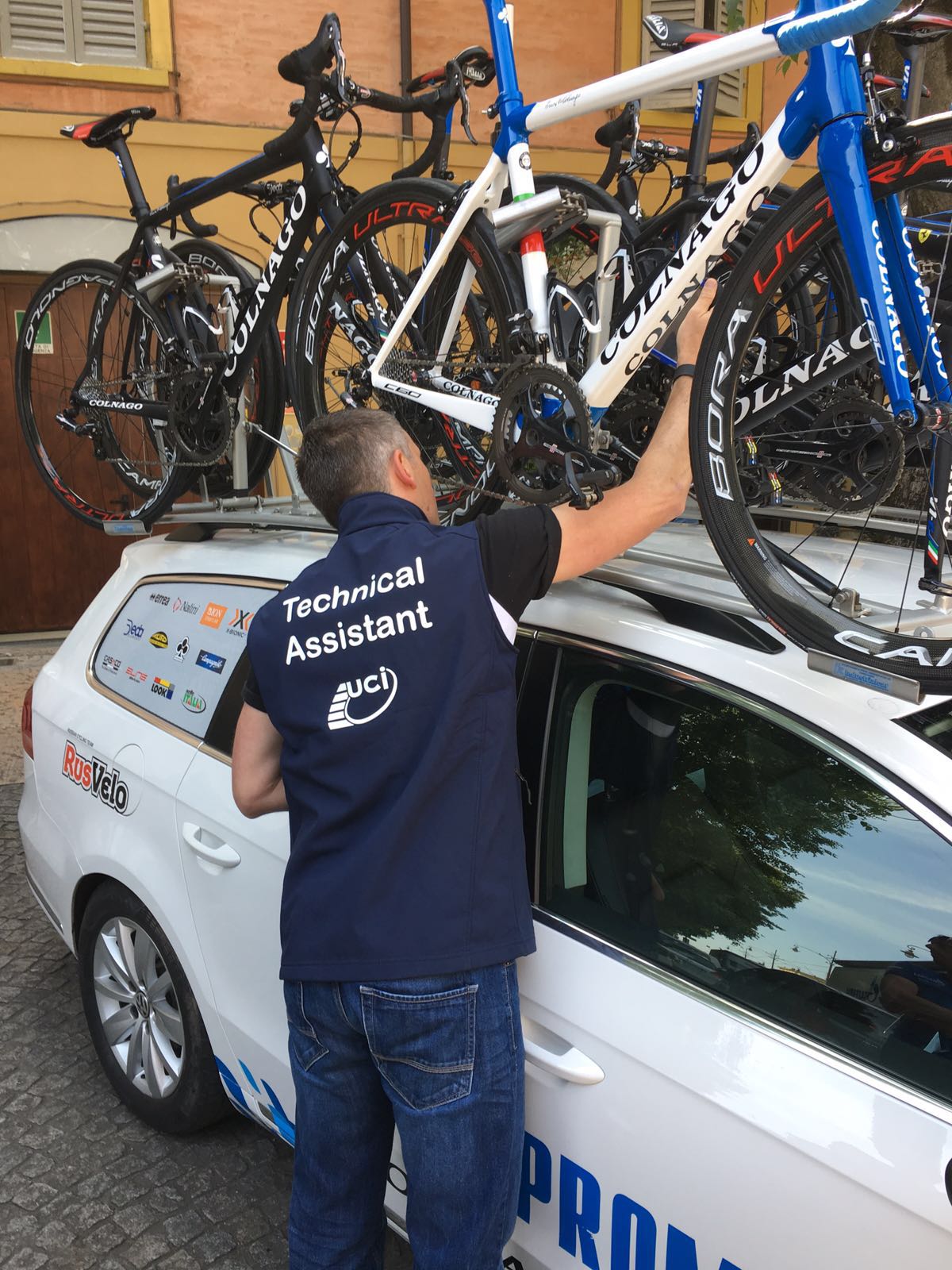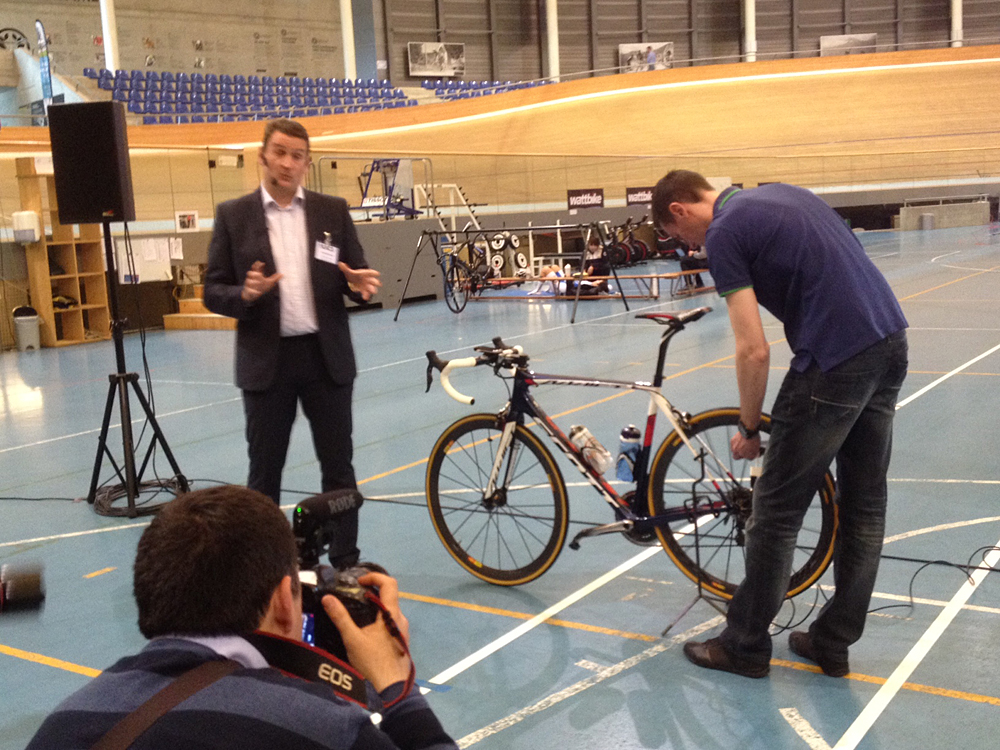British Cycling uses UCI tablets to check for mechanical doping
'While technical fraud is extremely rare, we need to ensure that we are taking action.'




British Cycling has confirmed it has carried out a series of checks for mechanical doping at the British national time trial championships, using the UCI-approved tablet device often seen at professional races.
British Cycling is one of the first national federations to carry out testing after purchasing the tablet device fitted with special magnetic flux density software. Each tablet is believed to cost several thousand Euro. USA Cycling carried out testing at its road race championships in early June but opted to use a FLIR thermal imaging device. The UCI has opted against using heat guns of any type, claiming that the expensive tablet device offers a more effective and quicker method of detection.
The UCI has worked hard to show it is serious about fighting mechanical doping in recent months, especially since a rudimentary motor was found in a bike belonging to Belgian and European under-23 champion Femke Van den Driessche at the cyclo-cross world championships in January. In early May the UCI demonstrated its tablet device in an attempt to fight growing criticism.
However the French Stade 2 investigative sports programme went on to question the effectiveness of the tablet device and suggested that UCI Technical Manager Mark Barfield had disrupted a police investigation into mechanical doping during last year’s Tour de France by tipping off Harry Gibbings –the CEO of e-bike maker Typhoon, who had hired Hungarian engineer Stefano Varjas –believed to be the brains behind the hidden motor technology.
British Cycling confirmed that its staff had training on how to use the tablet device from the UCI and will continue to carryout bike checks during the British national road race championships in the north-east of England.
“British Cycling is one of the first national federations to respond to this form of cheating and we are taking our responsibility very seriously. The National Road Race Championships was the ideal first event to undertake testing of the new technology,” British Cycling’s cycle sport and membership director, Jonny Clay, said in a statement.
“While technical fraud is extremely rare, we need to ensure that we are taking action in the fight against all forms of cheating and the new scanning method is a real step forward, especially given that it can be done so quickly. We will soon roll out the testing across other disciplines.”
Get The Leadout Newsletter
The latest race content, interviews, features, reviews and expert buying guides, direct to your inbox!

Stephen is one of the most experienced member of the Cyclingnews team, having reported on professional cycling since 1994. He has been Head of News at Cyclingnews since 2022, before which he held the position of European editor since 2012 and previously worked for Reuters, Shift Active Media, and CyclingWeekly, among other publications.